Menu
|
Carmen Yahchouchi is a very courageous person, no doubt. This young photographer from Lebanon is not afraid to take risks when she tries to tell the story that she wants us to know about. When it gets dangerous, Carmen Yahchouchi keeps going, embracing the rush of adrenaline that goes with it. She secretly entered the rooms of sleeping migrant workers when working on a project called Vulnerable Visits. For Beyond Sacrifice, she won the hearts of women who stayed single all of their lives - most of them against their desire. Carmem Yahchouchi shot intimate portraits of proud yet deeply sad women sitting in their bedrooms who were able to exactly analyze when and why their lives’ journeys had taken a turn onto a road they hadn’t planned to follow. Until this point in her career –we are at the end of the year 2016 - Carmen Yahchouchi mostly had taken photos of women and of persons either sleeping or in their bedrooms. Her photos often had two different angles: either her camera looked straight into the eye of the person that she photographed - as in her most famous photo, the intriguing Victoria from the My Mother’s Gun series - or her photos were stolen moments with a voyeuristic feel to it. Carmen Yahchouchi doesn’t deny this side of hers at all. “I love voyeurism!,” she says when I interview her in Beirut. “I always have. I took many photos of my entire family, and of my ex boyfriends too, being a voyeur. Often I caught them while they slept or in other intimate moments.” 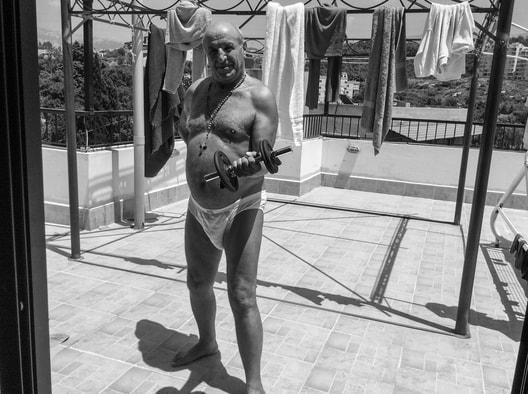 When a voyeur and adrenaline junkie meets a narcissistic, attention seeking exhibitionist, things get interesting. When Carmen Yahchouchi meets Suleiman for the first time, she instantly feels that she comes across a somewhat dangerous and perverse man. King Soleil Man, as he likes to be called, had repeatedly posted naked photos of himself on Facebook, sometimes together with African women. Facebook shut down his page as soon as they became aware of it, however Suleiman kept reopening it, posting more photos. Originally Carmen Yahchouchi had looked for single men to complement the many women of Beyond Sacrifice. She soon learned that Suleiman, an 80+ senior from the coast of Lebanon, actually was married with children (although neither his wife nor his children talked to him anymore). “I will tell you everything,” he said to Carmen, “I have nothing to hide.” Suleiman didn’t qualify for the project, Carmen Yahchouchi knew that, but he fit the crispy, out of the box profiles that she likes to get involved with. The exhibitionist had shown his potential and the voyeur had taken the bait. When Carmen visits Suleiman in his house for the first time, she meets two African women there, Sandrine and Rosy. They are migrant domestic workers. Sandrine, from Cameroon, is a warm-hearted and open person and very soon Carmen starts taking pictures not only of Suleiman but also of her. “When Sandrine was there,” Carmen tells me during the interview, “there were no limits. Suleiman and her were in love.” Suleiman opens up to Carmen right from the start. He loves to have her and her camera around and poses naked almost immediately, with no shame at all. Quickly the situation at Suleiman's home deteriorates. Sandrine is arrested in a night club without her residency papers on her and must quit Lebanon on short notice. She leaves Rosy behind, alone with Suleiman. Rosy has a different character than Sandrine: she is calm, shy and very religious. Suleiman had picked her up from the street a few months earlier where she had stranded because of problems with her former employer. And then one day, Carmen receives photos from Suleiman on her WhatsApp, photos that Suleiman had taken, showing him having sex with Rosy. The fate of migrant domestic workers in Lebanon is a very difficult one. Lebanon is home to over 250’000 (female) workers who come from African and Asian countries and work in private households. Stories about them being exploited and abused are widespread. A report published by Amnesty International in April of 2019 titled “Their house is my prison” revealed significant and consistent patterns of abuse. Employers force their domestic workers to work extreme working hours, deny them rest days, withhold their pay, severely restrict their freedom of movement and communication and subject the women to verbal and physical abuse, as well as denying them proper health care. All migrant domestic workers, Amnesty International writes in its report, are excluded from the Lebanese Labour Law and are governed instead by the kafala system which ties the legal residency of the worker to the contractual relationship with the employer. If the employment relationship ends, even in cases of abuse, the worker loses regular migration status. The excessive power employers have in this system over their employees and the strong dependency the women have towards their employers are very obvious. Rosy finds out that Suleiman had sent pictures of her making love with her employer to Carmen. She yells at Carmen. She is outraged. Rosy suspects a plot of some sorts where Suleiman and Carmen had conspired against her. The dynamics of a destructive triangle begin to work: Rosy is very angry with Suleiman because he had sent the photos to Carmen and she is very unhappy with Carmen having "accepted" these pictures. Rosy starts to get bossy with Suleiman. He in turn is not happy with Rosy making such a fuss about the pictures. Suleiman's relationship with Carmen starts to go frosty too. Whereas Suleiman was very open in the beginning, allowing Carmen to take very intimate photos of himself, he now backs up, “starts to go crazy on me” (as Carmen tells me), insults her and even tries to break her camera. Did Suleiman already regret to have agreed to this project? Had Carmen entered his life and his mind more than he was comfortable with? Are we correct in saying that Suleiman is an exhibitionist? Is that his pathological condition? This writer is not a psychologist to answers these questions competently and we shouldn't jump to easy conclusions either. Certainly Suleiman has exhibitionist traits, like we all have - think the many selfies on Instagram and Facebook. Exhibitionism, and the addiction to exhibitionism, is similar to any other substance addiction. Often exhibitionism starts with emotional wounds; it becomes a way to numb the pain from these wounds and a substitute for real intimacy and connection - something the addict both longs for and fears. For adolescents, who are about to discover their bodies and their sexuality, staging and photographing themselves how they like themselves to be seen - and posting it online - strenghtens their self-confidence. It is a well documented behavior which leads us to the follow-up question of what is the level of self-confidence of elderly persons such as Suleiman who experience their bodies slowly “expiring”? Some other things that Carmen Yahchouchi knows about Suleiman at this point of the story: he has a lot (really, a lot, she says) of images on his phone. All photos are from black women, all different women. He is mad about black women. He stays 24/7 on his phone, constantly sending out virtual hearts and flowers. Also to Carmen. With time, Rosy understands that Carmen Yahchouchi is a friend, not an enemy. After all, Carmen is an African woman too. She was born in Bamako, Mali, and lived there until the age of 18. Rosy entrusts herself to Carmen and tells her that she is mistreated by Suleiman. Carmen goes out to buy a suitcase for Rosy so she can pack up her things and leave. Suleiman is furious. Carmen starts to become an actor in her photo project, not just an observing by-stander. She can't remain neutral and choses her side. The line between the art and the reality becomes blurred and actually stops to exist. Does this photo project say more about Carmen Yahchouchi than about her subject, King Soleil Man? What is her motivation to keep visiting Suleiman when he clearly becomes threatening to her? Suleiman sends her WhatsApp messages and writes that he wants to make love with her. One day, while she is with him, he shows her how he googles for “sex Carmen” on the internet. I must be strong now and not show any sign of weakness, Carmen says to herself, when on another day Suleiman starts to caress her neck while sitting next to her on the sofa. “What was this obsession that you had with King Soleil Man, Carmen?,” I ask her when I talk with her in Beirut. “Well, as you know,” she replies, “I like the dangerous and the adrenaline. But with Suleiman it went further. I was not able to get a hold of him. With the women that I had photographed for previous projects, it was easy for me to enter into their hearts. Now with a man… I went mad. I kept telling myself that I must finish what I had started.” To finish what? We all have these father-figures (literally or figuratively), these king-like figures that we put on a pedestal, particularly as a child. Suleiman could easily be one of them, he perfectly fits the profile. And why not put him there? After all, he is a well respected person in his community, a bit strange maybe, but not far off the mainstream. And then at a certain point in our lives we search to demystify these imposing figures and we want to throw them off their pedestals. They have done things that we know of and they know that we know. For a long time we were not able to talk about it, but now we are. However something holds us back. It’s not the right moment maybe, it’s not the right occasion to really turn a desire into action. What are the benefits, what do we have to lose? So we may take aim at another person instead because someone has to fall. You are no king, King Soleil Man. My lenses can see through you. You have become transparent to me. Some of Carmen Yahchouchi's photos may feel uncomfortable to look at. They take us out of our comfort zone. We may think that these photos go too far, that the photographer didn’t stop where she should have. Did Carmen Yahchouchi overly intrude in Suleiman’s private life, can she even be qualified as a stalker? But then again, it was him who invited her into his bedroom, it was him who sent very explicit photos to Carmen. Let me introduce you to one of these “to the point” German words, Fremdschämen. The concept of Fremdschämen means that we are embarrassed because someone else has embarrassed himself (and doesn’t notice, or - even more vexing maybe - doesn't care). Usually we try to avoid this kind of situations, we look the other way, we turn the TV off. Only to turn it on again, to zap until we have found another “The Bachelor”, another “I’m a celebrity get me out of here”, or any other TV show that makes us feel better about ourselves, because these shows provide us with so much material to feel embarrassed about other people. We love to see other people fail. If we feel awkward, even embarrassed by Carmen Yahchouchi's photos, her project was a success. 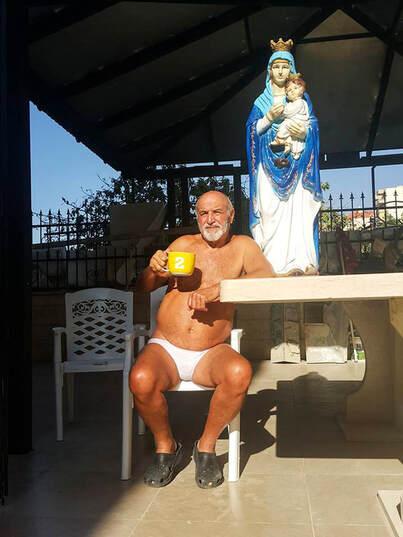 Carmen Yahchouchi’s photos of the self appointed King Soleil Man also teach us another important lesson: the more we see the less we know. It is not by watching pornography that we learn about the joy of sexual love. It is not by booking a “see all” holiday package to China that we will know more about the inner workings of a society governed by an authoritarian regime. It is not by following Kendall or Kylie Jenner’s Instagram feed that we understand the true personalities of these model-entrepreneurs. Suleiman showing off his erection shouldn’t make us look past his many personal conflicts, his weaknesses, his anxieties. What we see is what he wants us to see. The message he tries to convey is the mirror he would like to see himself in. When Suleiman says “I will show you all I have”, he actually means “I will hide everything”. The last photo of the series shows Suleiman sitting on his bed, all dressed up in winter clothes, confused and lost. His encounter with Carmen Yahchouchi and her camera had made him drop his shield, his facade had disintegrated and his soul was laid bare. Within a few weeks he had gone from close-ups to closed-up. For a long time Suleiman had clung to a distorted image of himself. We all do when it seems to serve us. Because it is too painful to try real intimacy for a change and to finally start healing our emotional injuries. For an even deeper dive into the world of King Soleil Man, here is a selection of additional photos taken by Carmen Yahchouchi.
0 Comments
photos by May Arida.  As we all know there are two types of Americans (like everything in America exists twice, once in a bearable, once in an unbearable way): on the one hand we have the cacophonous Americans, represented by Donald Trump. On the other hand we have the introspective Americans. Julia Holter, the avant-garde pop musician from Los Angeles, belongs to the second group. She herself suffers a great deal from the cacophony of some Americans. When she does she often goes back to her studio for a cathartic recording session. Originally cathartic meant to purge the body of unwanted material. Nowadays the expression is also used to describe emotional release and spiritual cleansing. I meet Julia Holter for an interview one hour before her concert in Zurich to present “Aviary”, her most recent album. “When talking about your new album, you often use the word cathartic. What is the unwanted material you want yourself to purge from?,” I ask her. “I don’t really know,” Julia Holter says. “For this record I was recording myself improvising and then I created my new songs starting from these improvisations. And while improvising, I felt ecstatic, sort of hypnotic and in the moment. It felt therapeutic in a way. But therapeutic is the wrong word too because it was more intense than that. It kind of put me in a space of something. In a space for me to be in.” As Julia Holter has said herself in a previous interview: she finds it hard to be articulate sometimes. She actually finds it hard to communicate sometimes. Julia Holter is a rather shy person, a bit nervous when talking to strangers and despite her success with critics and the audience alike, she is not always quite sure about herself. When interviewing Julia Holter one doesn’t get prefabricated replies. She is a seeker who probes, considers and weighs every statement before it is formulated. For a humble, no-show-off-person like Julia Holter, “I don’t know” is a possible answer too. Julia Holter’s albums are a daring and unique mix of experimental sounds and familiar melodies based on her profound understanding of the history of music, be it pop or jazz. On “Have You In My Wilderness”, her record of 2015, Julia Holter uses strings that feel like a slow camera drive in a documentary film on the history channel, showing objects that in their primetime meant something to somebody but don’t belong to anybody anymore today. Last year’s “Aviary” is full of instrumental parts where the listener is left alone with his or her thoughts. What is it exactly that fascinates me when listening to Julia Holter? It is the yearning that she conveys. The yearning for a beautiful dream. How does Julia Holter perform her music live? Surprisingly very close to the versions recorded in the studio. Her band (consisting of percussions, a stand-up double bass, synthesizers and keyboards, plus a violin and a trumpet) is able to recreate and provide the chamber pop experience the audience came for. The muted trumpet played by Sarah Belle Reid is masterful, particularly in a duet with Julia Holter singing and playing keyboards on “Voce Simul”. Julia Holter and her instrument are positioned closed to the edge of the stage; she mostly has her eyes turned towards the ceiling, fixing a point somewhere in the middle of the room. The stage is dimly lit and when the spotlights are on, they are rather directed towards the band than towards her. In between her trips to a musical fantasyland one can even tap his foot and dance to Julia Holter’s music. “You are asking a lot from your listeners. How do you find your audience with music that sounds complex and is not easily consumed?,” I ask Julia Holter during the interview. “I don’t know how complex my music is,” she replies. “I am not like ‘I want this record to be complicated’. A lot of people I know who don’t make ‘commercial music’ are not thinking about the audience when they are composing, to be honest. In the end it’s really doing what you want to do and that is all you can do actually. It’s not that my music is not for an audience, it’s just not for a specific audience." “Could you write a number one chart hit?” Julia Holter is slightly surprised when hearing my question. “Chart hit? I don’t know,” she says. “It doesn’t occur to me to do that. I am told that people writing for the charts strategize and I am not strategizing at all what I do. It’d be cool to have a chart hit though, I am not against it.” "I want to embrace mystery and embrace things that I haven’t heard before.” Recently, I tell Julia Holter, I met a musician who told me that he is always looking for the resistance in his music. If it is too easy he is not interested, because through resistance he wants to explore deeper. What is her take on this? Does she feel the resistance when composing? “I wouldn’t call it a resistance,” she answers, “it’s more like a challenge. For me composing feels less about conflict as the word resistance suggests. It is rather pushing in a free way, like freeing yourself and finding a new path, finding new neural pathways. I want to know what is possible and embrace mystery and embrace things that I haven’t heard before.” In that sense Julia Holter is a very playful character. She is having fun with what she is doing so skillfully: creating sounds and making music. Almost out of the blue she can produce lines like “I si I tho I sex I jeu I nice I hey I ay I show I fun I tall” (in “Les jeux to you”) to have us bathe in the sounds of these words. Is she aware of the impact her records and her concerts have on her audience? Fully realizing how much her art resonates with many people around the world - and integrating this awareness - should in itself fuel Julia Holter’s obvious quest to own her power. We may not have heard anything from Julia Shammas Holter yet. photos by May Arida 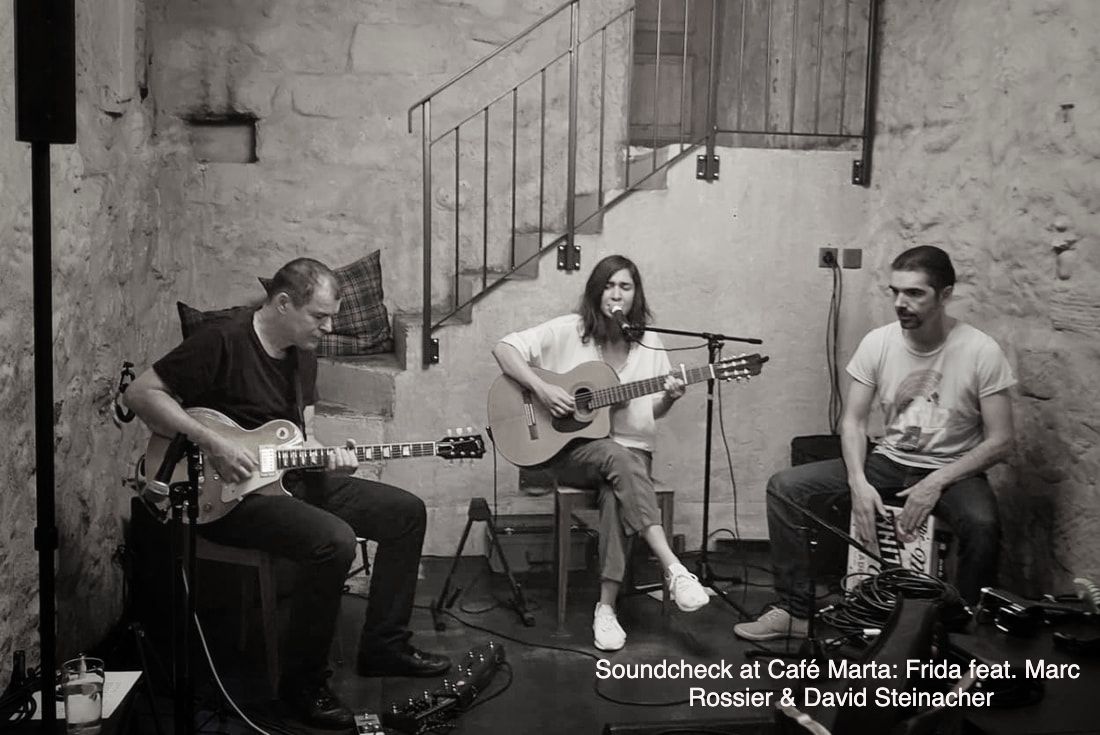 “I want to see what will happen if I only do what feels right,” says Frida Chehlaoui - who on stage is simply Frida - to an audience eager to discover this emerging singer/songwriter coming from Lebanon. “I want to see what will happen if I just go ahead and try. And now I see where this attitude got me,” Frida continues, “it got me here to play my first concert in Europe. I am really very happy to be here." The here is Café Marta in Switzerland’s capital of Bern, a cosy cellar made of medieval brick walls in the city’s old town, turned into a café and an occasional concert venue. Frida is accompanied by Marc Rossier on guitar and David Steinacher on percussion, two well known musicians in the Bernese music scene and beyond. Frida had met them just a few days before the concert and two short rehearsals were all it took to make it a well tuned trio. Tonight Café Marta is the hottest place in town: the cellar is crammed with people - and so are the stairs leading down to the cellar and even the steps behind the stage -, it is hot outside and sticky inside and the incessantly revolving fans, despite of all their efforts, cannot make it any cooler. Frida was announced as Arab Soul from Beirut. But what was it exactly that brought such a large crowd to Café Marta on a midweek summer evening? The words Arab, Soul and Beirut all have their own particular connotations, an almost magical promise to discover an emotional territory not usually accessible to Western Europeans. However Frida is much more than what she seems to represent. Starting with a warm and slightly smoky voice, and the natural ability to talk to an unknown audience and make them listen to her, Frida’s universe mainly relies on three pillars: connecting to one’s higher frequency, co-creating and experimenting. All of this is topped by a roof that Frida calls “the role of joy in the creative process”. Why suffer to create when you can walk the path of least resistance and thus bring out the creator that lies in all of us? “I know things beyond the physical realm" As a child Frida signed her first poems as Free-da and thirty something years later this makes more sense than ever. “My connection with the audience is that they see someone on stage who is absolutely free in that moment,” Frida tells me when I interview her after the concert. “I am free to say what I want to say, free to do what I want to do, free to allow myself to feel what I am feeling without thinking if this is going into the right direction.* “What allows you to be this free?,” I ask her. “I know things beyond the physical realm,” Frida replies. Frida’s freedom doesn’t even stop when facing Nina Simone’s Sinnerman, a monument of black American music and one of two cover versions that Frida has in her repertoire. Not happy with the original lyrics (on Judgement Day the frightened Sinnerman goes to the rock, the river and then the sea, desperately looking for protection and finally turns to the Lord who refuses to help him and sends him to the devil instead), Frida added her own twist to the song, because after all the Lord is love and not supposed to send anyone to the devil, no matter how much this person may have sinned. “I see you,” sings Frida in Arabic, “I see the fear in your eyes, I see the chains you’re carrying, but you seem to have forgotten how you were the one who put them there. It is now time for you to see your power, the power of a thousand suns shining from within you, shining to remind you: don’t you know that you and I are one and the same?” This is extremely powerful and beautiful at the same time. Frida’s songs are meant to remind us who we truly are and that we should forget about the restrictions that we limit ourselves with, that we can be much more than we think. In “Out and About”, Frida describes how our bodies must open up to embody the light that we truly are. In “Aala Mahli” (going slowly) Frida tells us the story of the heart that must be our guide, the only guide we ever need. Frida herself is “Bint el Kol” (the daughter of everything); her homage to the divine feminine will also be the title track of Frida’s first album set to be released in September of 2019. Frida is the daughter of the wind, the daughter of the sun and of the waves (“like the waves I can be calm, like them I have been fierce”), she’s the daughter of the earth and the daughter of ether (“unseen and omnipresent, weaving us all into one”). Frida’s concert in Bern was a success beyond expectations. The audience was thirsting for her message of self-love and collective empowerment and for her well tempered dose of spirituality that many of us are lacking in our get-up-and-go lives. Visiting Bern has enabled Frida to meet musicians such as the exceptional accordionist Mario Batkovic and ECM recording artist and bassist Björn Meyer to talk about their approach to music and about possible future collaborations. Already Swiss rapper Greis joined Frida on two songs at Café Marta, subsequently inviting her to be his guest at his own concert later that week. Frida sang Ya Sadi’i (my friend) on this occasion and this song’s story “about the courage to chose the less traveled path to experience the magic unfold so we become the makers of our destinies”, is a story that speaks to all of us, regardless of our mastering the Arabic language or not. Frida’s message is an universal one. We need her to be the companion of our lives for many years to come. from The Open Enso archives. Photos: May Arida 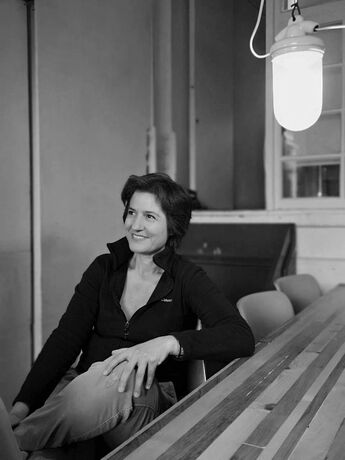 Three concerts in a row in one of the music capitals of the world: that’s why Sandra Arslanian and Sam Wehbi came to London in this early September of 2018. Sandra and Sam are members of Sandmoon, an indie pop/folk and sometimes rock band from Beirut Lebanon. Sandra founded the band eight years ago, a few years after she came back to Lebanon from Belgium where she grew up; she writes all the songs, sings and plays the ukulele, the guitar and the keyboard. Sam plays the lead guitar, particularly when Sandmoon perform live. The rest of the band couldn't make the trip to London, not least because of visa issues. We arrive in a sunny but windy London on Friday afternoon. We: that are yours truly reporter from Switzerland and May, a photographer who is originally from Beirut, like Sandra and Sam. Both of us have known Sandra for quite some time, closely following her career, from releasing three albums and an EP to winning a Lebanese Movie Award in 2017 for composing the score of Philippe Aractingi’s Listen. We meet Sandra and Sam in Katja Rosenberg’s apartment in Walthamstow in northern London. Katja’s flat is small and well stuffed, but this is London where space is rare and expensive. For this weekend the apartment is Sandmoon’s home base. Yesterday’s concert in a chapel was amazing, Sandra gives us the update after we all sit down. Two dozen persons only, but the place was sold out. We played for eighty minutes and the people wouldn’t let us go. Now we are curious what tonight’s concert will bring. It will be a Sofar event at a private place in Bethnal Green. "It is really nice to play in front of people who actually listen to the music." On our way to the Sofar concert Sandra hands out Stimorol chewing gums to everybody. Tonight, Sandra says, I will be the great unknown. Nobody this evening will ever have heard of Sandmoon or Sandra Arslanian. I like the idea. Our music, she explains, might not work in Spain. But in Portugal, with all their Fado, it might. Here in London our music definitely works, people like what we do and how we sound. Are you fed up with Lebanon and the Lebanese audience?, I ask Sandra. Not really, she says. But of course Lebanon is a very small market for English lyrics pop and rock music. And there is another thing: unfortunately in Lebanon only a few people go to see concerts because of the music. They go because others go too and it then becomes a social event. It’s like a herd moving from place to place. It is really nice to play in front of people who actually listen to the music. Sofar tonight takes place at the loft style apartment of Casey and his girlfriend Rachel. Sandmoon start their concert with Home, one of their trademark songs. Sandra sings without microphone, without nothing, to an audience on the floor and on sofas with all eyes on her. Sam is her ideal musical partner, getting the best out of a rusty acoustic guitar that he had to borrow from a friend. With the small combo, Sandmoon depend even more than usual on Sandra’s voice and performance. The audience is like spellbound, particularly when Sandmoon perform The Answer, a song from last year’s recording session in Berlin. Then they play Walk, an old favorite, but not Temptation, a newer song that wails like a prayer. It’s Friday night and the audience asks for something "more party". After the show Sandra is sweaty and exhausted. The public slowly leaves the apartment, they very much liked what they got. We pick up some Chinese food at a takeaway in Walthamstow. Then we all huddle again in Katja’s apartment and eat. "Me improvising on Bach, what the hell!" The next day, when we meet again, Sandra is in a good mood, offering Belgian chocolate to everybody. Sam lies on the bed and fingers around on his electric guitar before he goes into a catchy rock tune from his own Uncle Sam band in Beirut. In the meantime Katja is busy doing some household work, watering plants and hanging laundry. Katja was born in Germany but lives in London since 1998, working as a freelance powerpoint guru and an organizer of art events. It is thanks to her that Sandmoon play three concerts in London. Katja sits down at her piano, jammed between the bed and the wall, and plays Bach. Sam plays along on the guitar, still on the bed, his eyes staring at the ceiling. Me improvising on Bach, Sam says afterwards, what the hell! Saturday night’s venue is the Hornbeam Café, an organic, authentic neighborhood café and also a community center. The Hornbeam is a place similar to the Onomatopoeia in Beirut where Sandmoon like to play. What is Sandra for you?, I ask Sam outside the café, just before the show. Sandra is like a mother to me, Sam says. She is a great teacher; it’s three years now that I am playing with her. She makes me control myself better, musically and also in general. I am still relatively young, Sam explains, and therefore I have a tendency for wanting to storm the sky. Even without the full band, Sandmoon cover a lot of musical ground with their performance this evening. Sandra clearly has made the transition from recording artist to performing artist. She is at ease on stage, displays a lot of self confidence and is closer to the audience than I had ever seen her. During Sandmoon’s concert all their videos are projected in an endless loop on a screen behind Sandra and Sam. The audience sees images of Beirut in the 1960s and of people protesting the political order in recent years. The video of Sandmoon’s 2017 single Shiny Star passes by and Pierre Geagea dances in Beirut Mansion to the music of Time Has Yet To Come. Seeing it like this, from A to Z in one sequence, it is an impressive body of work. On our way back to the apartment we stop for a late night dinner at Thainese, an Asian restaurant on Walthamstow’s main road. We talk about Prince and Bowie, Sandra’s musical heroes, and also about Fentanyl and discuss if pain killers should be classified and treated as drugs. For Sunday lunch we again go to Walthamstow’s pedestrian area and to a Bulgarian steakhouse. What is the way ahead for Sandmoon?, I ask Sandra. Could hiring local musicians in London be possible, to play future concerts here with a full band? It could, Sandra replies. However it is hard for me to play with strangers. Sam and me for instance, that’s like an osmosis. In addition to not being strangers, Lebanese musicians are all shaped by the same experience: Lebanon. Could musicians from London emulate this experience? Often this is an experience of war and it is also reflected in Sandmoon’s current setlist going from songs off the first album raW to Masters of War, a Bob Dylan cover. I don’t know the war that well myself, Sandra says, at least not first hand. In 2006 I was abroad and when my family left Lebanon because of the civil war, I was only seven months old. Does it matter? Despite not personally being there, war and the consequences of it are profoundly anchored in Sandra’s DNA. Back in Switzerland Sandra messages me that Sandmoon will soon start to record new songs, with an aim to have a new album out in 2019. Sandra has been very creative lately, also inspired by the good experience she had playing in London. She was in a flow and has written many songs that now need to be developed, refined and recorded. And: We clearly aim for an another Sandmoon visit to London soon, Sandra says. Londoners dig the melancholic side of Sandmoon’s music and they always love a good storyteller. And that’s precisely why Sandmoon came to London: to find a new audience and new opportunities to spread their message and their musical love. Sandmoon will be back in London; new concerts are scheduled for August of 2019. As for the new album: all the songs have been written - it will be somewhat of a new direction for Sandmoon - two songs have already been recorded and "Fiery Observation", the first video off the forthcoming album "Put a Gun/Commotion", has just come online. For Sandmoon, it's a road that never ends. Photos by May Arida 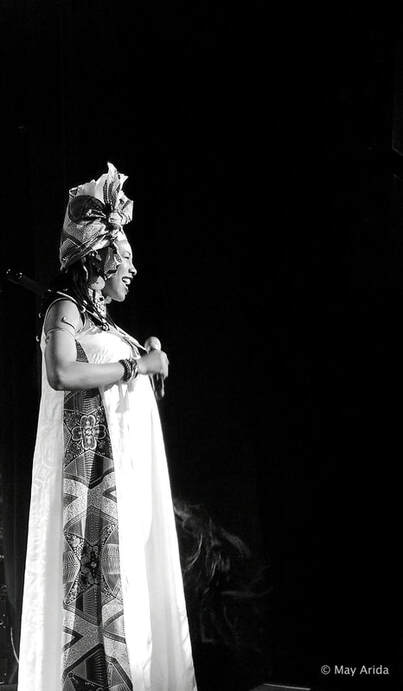 At the end of the film "Sia - the dream of the Python”, Sia confronts the new king, undresses herself and storms bare-chested out of the palace. She then time travels and in the next scene you see Sia walking in the streets of Ouagadougou where she demonstrates against tyranny all by herself. The main part in Sia is played by Fatoumata Diawara. It is a fictional story, but the persona in the film also carries quite a lot of Fatoumata Diawara character traits: fierce, unapologetic and authentic. As a child and as a teenager Fatoumata didn’t have an easy life. Growing up in difficult family circumstances, first in Ivory Coast and then in Mali, she had to fight to survive, against the tyranny of a family and a traditional society that had earmarked her for a different role in life. At the age of twenty Fatoumata Diawara ran away from home and joined a French theater troupe. "If I had that slip by," Fatoumata once said in an interview, "I wouldn’t be here today. I’d have minimum nine children and be very, very old (Fatoumata is 37 years old). My breasts would already be sagging and I wouldn’t have a job because I don’t have diplomas.” Tonight Fatoumata Diawara takes the stage of the Kaufleuten in Zurich. In the meantime she is no longer just an actress, but has also become a musician; she writes her own songs, plays the electric guitar and tours the world non-stop. It is a sunny Sunday evening in Zurich, you could also take a walk by the lakeside or have a barbecue in the garden, but the Kaufleuten concert venue is full. It is a mixed crowd that is waiting for Fatoumata, multi gender, multi age and multi ethno. Do they know what is in store for them? Can the audience anticipate that it is about to experience the greatest show that one can imagine as a concertgoer, with a personality - a woman, an artist - whose energy and presence on stage are second to none? Fatoumata Diawara doesn’t need to sing love songs because she herself is love. And then Fatoumata Diawara enters the stage. She is tall, she is beautiful, she starts to sing and to play, from Mali, from Africa, actually from all of us. For we are one planet, one humanity, one heartbeat, says Fatoumata, and the collective love that we derive from it makes it happen that by the third song already everybody in the house claps, dances and feels happy. Words are important to Fatoumata Diawara, however only very few in the public understand the lyrics of her songs word for word. Fatoumata sings in Bambara, a language from Mali. But she speaks with the eyes, with her voice; she talks with her gestures and with her body, and everyone knows what she means. Fatoumata Diawara wails, she jubilates, she accelerates and then slows down the pace again. It’s like a ride on the roller coaster of life where at the end the comfort of human warmth and the laughter of love await. I had hoped to interview Fatoumata Diawara before her concert in Zurich but her management shielded her from any requests because she needed to rest and to refuel before her "never ending world tour" continues. Experiencing her performance this evening, I understand why. Fatoumata goes all in when she's on stage. She has just been exhaustively touring in the USA, Canada and Spain, and after Zurich she will play in France and at the big festivals in Glastonbury and Montreux.
I would have wanted to know from Fatoumata Diawara how she, who speaks a lot about her responsibility towards Africa and the Africans, can handle this responsibility. Is it not too much for her at times and too heavy a load? It seems like she wants to save all of Africa on her own and counteract the rampant afro-pessimism (the Africans are muddling through and it's never getting any better) with a robust self-confidence that advocates specific African values and a self-responsible attitude to shape the continent. "Let's talk about the new Africa," says Fatoumata, the spokeswoman for a better Africa, in Zurich. "Many positive things happen with the new generation.” I also wanted to ask Fatoumata Diawara how she reconciles her two vocations, activist and artist. Can one say that her music embodies the artist Fatoumata and the lyrics her activism? How does she manage to find the right dose for both the fun and the serious? Incidentally, this dual role is not unknown in the culture of Mali. Already the early hunters - activists, if you will - became artists after a successful hunt and picked up an instrument to sing their own praises.  Self-evidently Fatoumata Diawara doesn’t sing her own praises. She doesn’t have to and she is way too smart for that. The rifle of yesterday's hunters has become Fatoumata's guitar of today. Just like her idol Fela Kuti, the Nigerian musical activist who invented the Afrobeat, a mixture of American funk and traditional African rhythms, often paired with provocative lyrics critical of the ones in power. In her repertoire Fatoumata Diawara has a song Fela-Kuti-style as well. When she performs “Negue Negue” (let’s have fun) from her current album “Fenfo”, Zurich goes through the roof. There is no more holding back; Fatoumata is grooving, the bass is booming, the audience is going wild. “We are having fun,” she sings, “it is what makes this world a better place to live in.” Fatoumata was not programmed for fun when she was born. Consequently she began her career as a musician writing and singing protest songs. "That's what I can do," she said in an interview for Afropop worldwide. "I can’t sing love. I can’t sing lightly." Fatoumata Diawara doesn’t need to sing love songs because she herself is love. She is love for the music, love for the people and the light on her face radiates and warms and brightens up even the last spectator in the darkest corner at the rear end of Kaufleuten. I am your sister and you are my sisters and brothers, says Fatoumata. We all want to hug ourselves and Fatoumata first and most strongly. Fatoumata is fantastic, Africa is fantastic, music is fantastic, we are one life and one love. We are one with Fatoumata Diawara. "Good thing that I am tattooed. Because from what I read and saw, the women of Velvet Two Stripes, who I will meet in an hour for an interview, appear to be a lot of trouble. On band photos their arms are covered with tattoos, cigarettes are dangling from their mouths and they seem to drink beer and fancy whiskey a lot. I will have to show off my own tattoos to be credible enough to talk to them halfway at eye level. These are the kinds of clichés that really piss off Sophie Diggelmann, Sara Diggelmann and Franca Mock, the three women of Velvet Two Stripes. Yes, we drink a shot of whiskey from time to time and we smoke cigarettes. Yes, we are loud and we like to laugh. So what! More annoying than this is only another widespread platitude: that Velvet Two Stripes is an all female band (or even worse: a girl group). Excuse me? Has anyone ever called the Rolling Stones a boy band? Let us better talk about music and "Devil Dance” then, the new album by Velvet Two Stripes, before VTS will hit the stage tonight in Berne, Switzerland. The album was recorded in Berlin, in the famous Hansa Studios; it is the temporarily summit of a road that Velvet Two Stripes have traveled since their first EP "Fire". "The songs of 'Devil Dance' sound different than you used to sound,” I ask the band, “how come?" Sara is the quickest to reply. “We are better at songwriting now. We have learned how to write better songs. This was the biggest step for us compared to before. Our new songs are very differently constructed than the previous ones." Songwriting by Velvet Two Stripes is often the result of jam sessions; everyone joins in and eventually, somehow, a musical idea emerges which is followed up. Most of the times a guitar riff coming from Sara is involved. "How many riffs does a guitarist’s life have?,” I ask Sara. She laughs. "I do not know if there is a limit,” she says. "RPL, riffs per life, so to speak. You can always play the same riff, but when the bass does something else then the riff itself will sound different as well." Sara started her life as a guitar player with a Fender Stratocaster and later switched to a Telecaster. Today she plays a Gibson ES-335 from the year 1968. Big guitar heroes like Eric Clapton, B.B. King and Dave Grohl play (or have played) the same model. Franca’s bass, a Fender Precision, is vintage too and dates back to 1972. "Only your voice is relatively young and is made in 1993,” I am teasing Sophie. "Who knows,” she answers slyly, "maybe it is the reincarnation of an older voice." "Janis Joplin maybe?" "In any case, I already shouted in 1993." Sophie Diggelmann knows her raspy rock voice well and knows how to keep it in shape. The important thing is, says Sophie, that she listens to her own body. Sophie senses how much her voice can bear and thus gets through the concerts without becoming hoarse. And should her voice nevertheless be a little knocked out then there is always tea. The cigarettes she smokes are not really good for her voice, Sophie is well aware of that, "but what else can you do if you must kill time before concerts?” Sophie studies art and is also responsible for the artwork of Velvet Two Stripes. The cover of “Devil Dance” is her work. And she also designed the VTS T-shirt that was a goodie in the band’s crowdfunding campaign last year and which I am wearing for the interview tonight. "In Beirut they almost wanted to rip your T-shirt off my body,” I say, "my friends there loved it that much." “Yes exactly, Beirut,” says Sara. “In one of your messages you asked us about the oriental-sounding guitar solo that I play on 'Sister Mercy'. The reason is that a few years ago I visited Beirut for two weeks and got to play the oud, the Arabic lute. I was inspired so much by this that I have played some oriental sounds in the studio when recording the album, but with an electric guitar.” Indeed: the oriental notes of "Sister Mercy" could indicate a future progression of the band. And also the noise elements that are present in several corners of "Devil Dance", especially in the last 30 seconds of "My Own Game”. Sure thing, the blues will always be the musical root of Velvet Two Stripes, but if we dive into the blues even more that we already did, the band says, "we can soon collaborate with Philipp Fankhauser." Anyway, Velvet Two Stripes don’t see themselves as a blues band, but rather as a rock band. As a blues garage rock band that likes to play hard and loud. With "Devil Dance" they have created the essence of this style, they have found the state they desire. The songs of Velvet Two Stripes have become more straightforward, without background vocals, pop elements and drum computers. VTS achieve a maximum effect with a reduced-to-the-max attitude. “With Velvet Two Stripes there is an ongoing development happening from the inside." Where is the musical journey of Velvet Two Stripes heading to? What's next in their career? I'm getting a rudimentary graphic out of my pocket that I drew in preparation for this interview. It shows Velvet Two Stripes in search of their true sound - which they have now found with "Devil Dance" - and the possibility, starting from this reference point, to further develop the sound of the band. The three women like the drawing. "On the new album,” says Sara, "we've become bolder and dare to try out new things. Take 'Lizard Queen’ as an example: I have been playing this rolling guitar part with the deep bass sounds for ages at our soundchecks. So far, Sophie and Franca always found that it was boring. But now the time was right and we tried to build a song around this part." “With Velvet Two Stripes there is an ongoing development happening from the inside,” Sara continues. "We find each other more and more." Hell would rather become Antarctica than "Devil Dance" not becoming a success. Songs from the album can now be found on various playlists on Spotify. As a result, the number of monthly clicks for Velvet Two Stripes has jumped from 800 to 82,000. The band has only a limited idea of how this all happened, who in the world of Spotify digs Velvet Two Stripes so much and integrates them into playlists, even in Canada. They also don’t know who is responsible for giving VTS airplay on a Dutch radio station. They didn’t pay anybody to do this. But by all means it’s great.
At the end of our conversation Sara returns to my sketchy mind map. "Nobody has ever made such a drawing for us,” she says. "Now I'm really excited to find out where our journey will lead us." Velvet Two Stripes will be on tour all summer in Switzerland, Germany and Austria. For details and dates check out the band's website. “Let me tell you a crazy story”, says Taka Goto, head of MONO, the Japanese post rock band, shortly before their concert in Zurich on April 28, 2019. “A story that happened a long time ago. First I received an email from a fan in Iraq. He wrote to me that he is listening to MONO all night long because only thanks to our music he is able to cope with the American bombs that strike his city incessantly. One week later I got an email from an American soldier stationed in Iraq. He told me the same thing: only thanks to MONO he endures the war in Iraq. Crazy, no?” Since 20 years the Japanese of MONO save the world. During this time they have released ten albums and played 1368 concerts. The concert in Zurich is number 1369. It is a special mix that distinguishes MONO and has always fascinated their fans. A mixture of breathless melancholy full of dramatic melodies paired with deafening musical climbs towards ecstasy. The music of MONO works on the principle of hope: our world is evil, but MONO gives you the weapons, gives you the therapy, to defeat the evil. Also Taka is saved by his own music. When he composes, he tells me, he dives deep into that damned darkness that sometimes surrounds him, trying to find a light. His songs have become his own medicine. ”Why do you need so much salvation?”, I ask him. "Because the world is so complicated”, he says. "Actually, the recipe in Buddhism is quite simple: respect each other, love each other, help each other. However this can be very difficult. That's what I try to explain with my music.” “I don’t trust what I see. There are things that we only can feel.” MONO is an instrumental band but on their website (one of the richtest and most informative I've ever seen of a band), they are very eloquent with words. Here Taka describes the idea behind “Transcendental” in words that would suit a church chaplain. The track is about life and death and regeneration, Taka explains. When our bodies decay and decompose in death, and thus become the seeds for future generations, our souls will journey together into our new eternal life. “Where does your spirituality come from”, I ask Taka. “I don’t trust what I see. There are things that we only can feel. The new album from MONO is called "Nowhere Now Here" and for Taka it feels like a second debut album. Two years ago MONO had huge problems with their management and at the same time the drummer left the band. The future of the band was seriously threatened; MONO was like a tired creature, Taka says: "No drummer, no management, no money." This dark period is also the reason why on the new album for the first time in the career of MONO there is singing. "One day Tamaki, our bassist, called me and told me I can’t breathe anymore, there are too many stories going around. And I told her, everything will be fine, trust me. The band will live on and we will also find a new drummer.” Finally, Taka wrote the song" Breathe”, based on the idea that Tamaki cannot breathe. And now she sings this song on stage! The new drummer’s name is Dahm and he is American. He fits frictionlessly into the well lubricated musical clockwork of MONO, also at the concert in Zurich. The stage is dark and the musicians can be recognized only dimly, they are shady faces in the backlight of the spotlights. The concert starts with a crashing noise storm, with thunder and lightning coming from "After You Comes the Flood". We have just celebrated Easter, the feast of silence, where deep mourning is followed by the joyful resurrection. And now MONO come to us with their din close to the pain barrier. Are these opposites? No, not at all. The latter is just a loud version of the former. Taka’s idol is Ludwig von Beethoven. “I understand each of his works”, he says, “and why he needed to write it.” Taka writes music because he must. Because he wants to create something, even as a child, that only he can create exactly like that. And even today, after 20 years of MONO, he is still grateful that he can fully concentrate on the arts with his life. He enjoys every day, even the days on tour, and there are many. "At the beginning of our career, in the early 2000s”, says Taka, "we played a large number of concerts, over a hundred a year, especially in the USA. At that time there was no MONO website, no social media and we had to somehow make a name for ourselves.” Only in 2008 did Taka Goto take a six-month break to compose "Hymn to the Immortal Wind," the album that fans almost unanimously call MONO’s masterpiece. How does Taka survive MONO’s never ending tour? He doesn’t go to the gym and he is not twenty anymore either. “True", says Taka, "my body is slowly getting older. It is the energy of our audience that drives us forward. Sometimes we go on stage super tired and boom!, the energy hits back at us from the public and we go again. Maybe we will even reach a new record of concerts played this year.”
The French composer Nadia Boulanger once said (to Quincy Jones), "your music can never be more or less than you are as a human being". Nadia Boulanger could have said this to Taka Goto; he is a prime example of her theory. Taka (and Yoda and Tamaki and Dahm) is MONO and MONO is Taka. There is no difference between the artist and his art, everything is one, everything is melting. However: with MONO there is no difference between the artist and his audience either. Anyone who attends a MONO concert comes out a changed person. It is this destructive yet creative power of their music that grabs you. After all the frustrations and the fear they went through, the band entered the studio to record their current album with a lot of rage; when MONO play live this anger is still perceptible today. But there is also this catharsis, through silence and through volume, that MONO creates and which lets you see the white light at the end of your own black tunnel. MONO concerts are mind blowing, in the truest meaning of the expression. You believe your brain is going to explode. You are transported and distorted, blasted and lambasted. You walk through damnation and receive salvation. You too are saved by MONO. |
EditorKurt is based in Bern and Beirut is his second home. Always looking for that special angle, he digs deep into people, their stories and creations, with a sweet spot for music. Archives
September 2020
Categories
All
I'd love to discover you. Share your creations here.
|

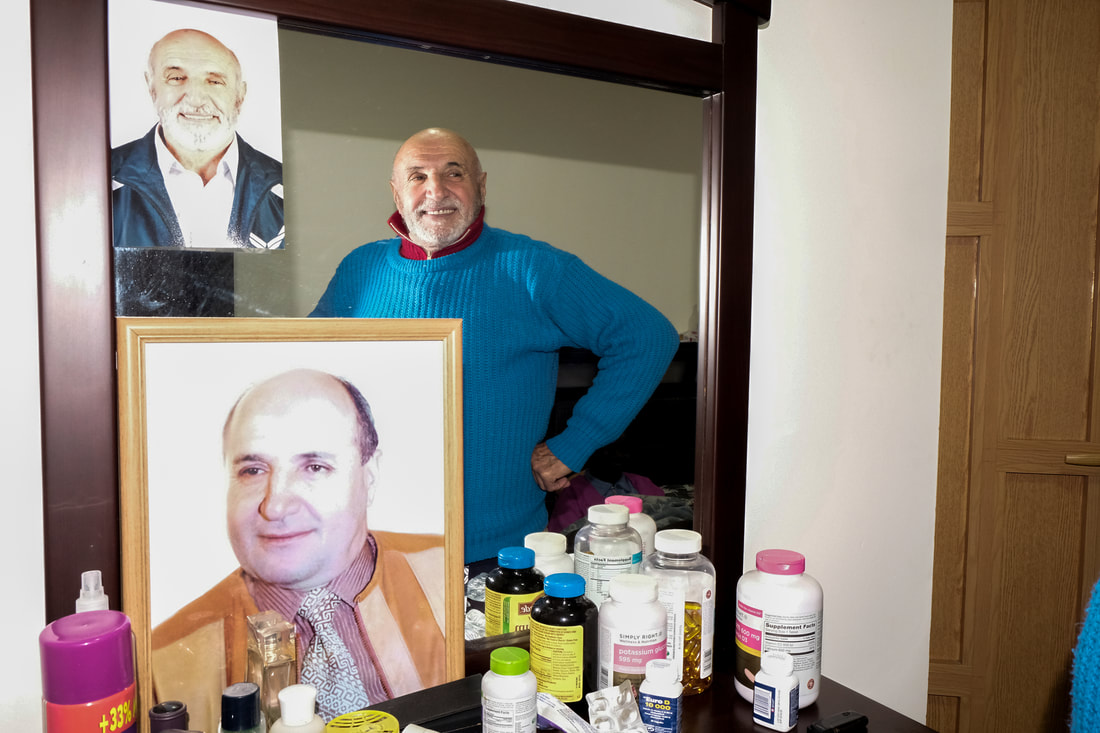
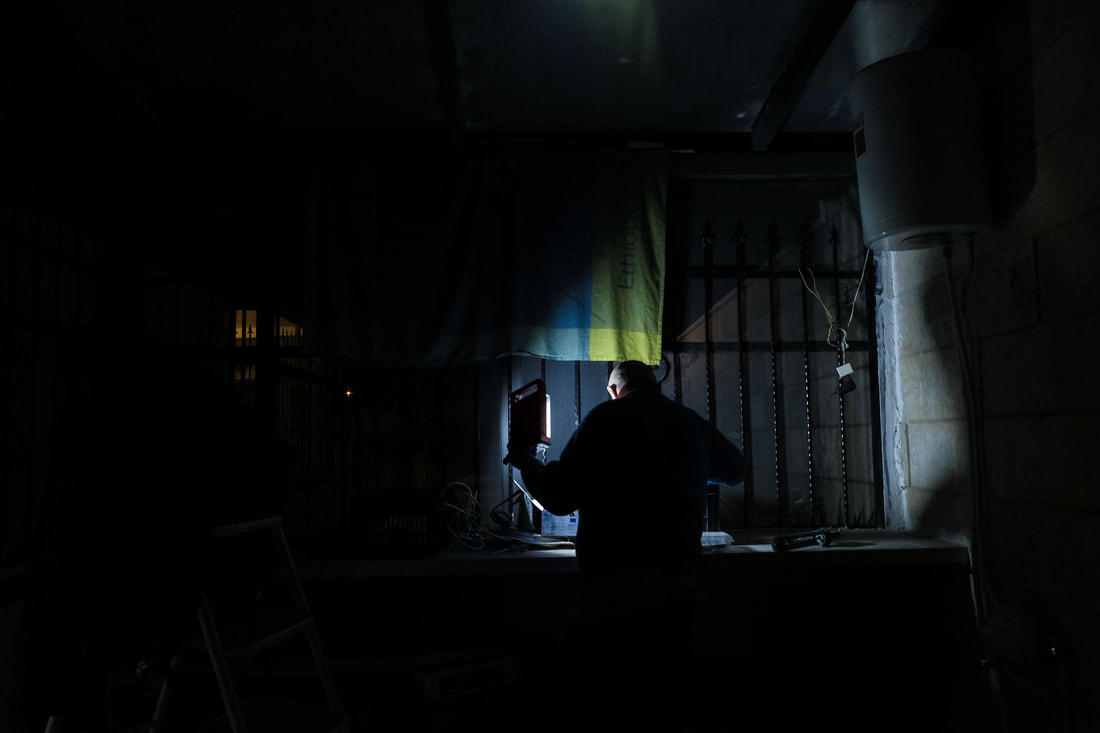
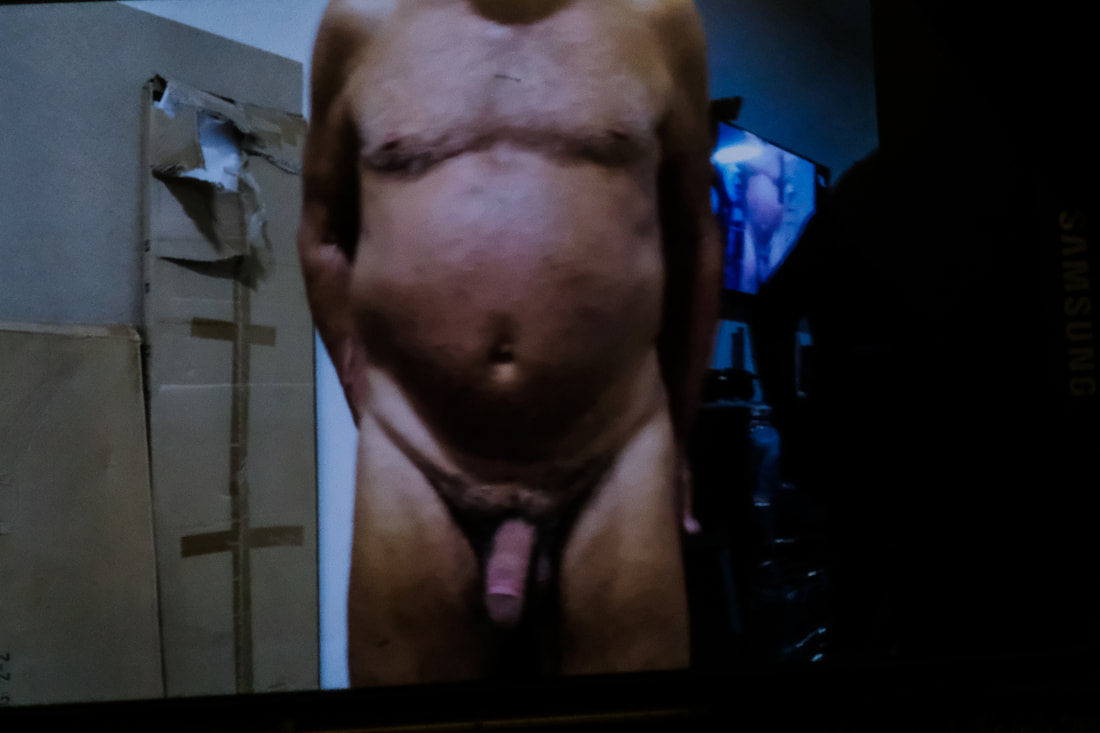
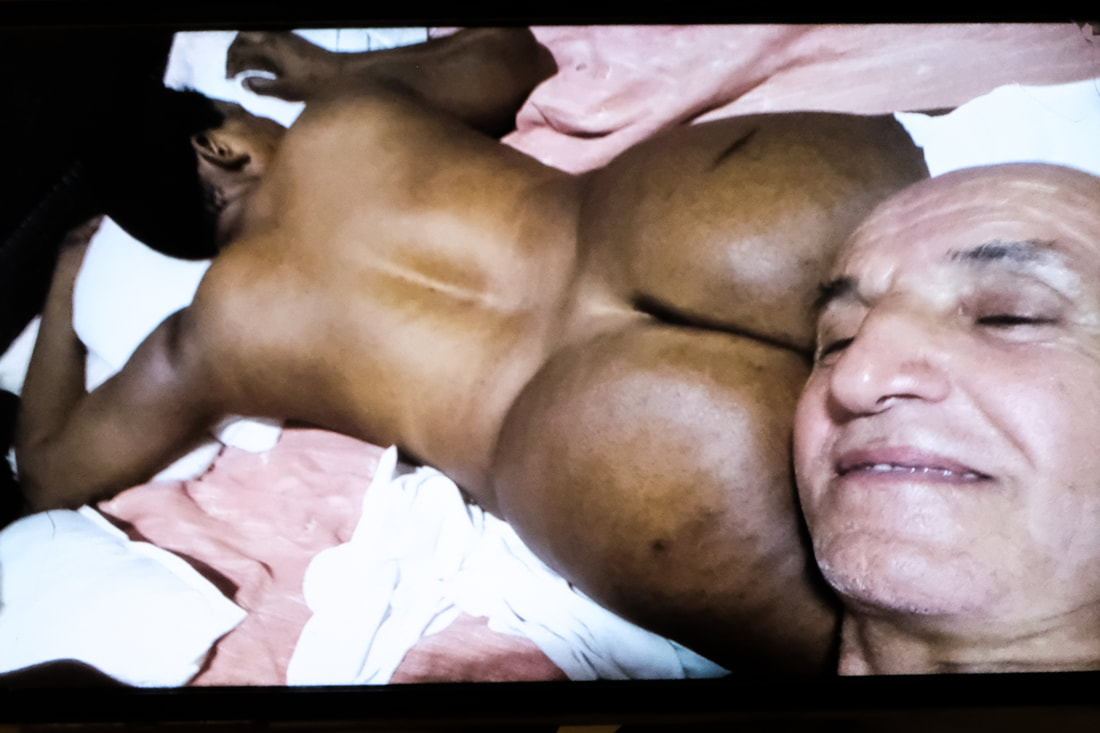
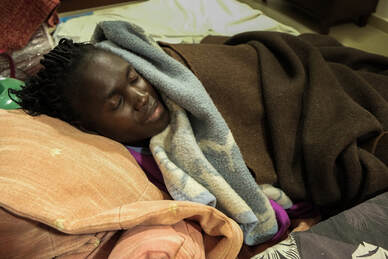

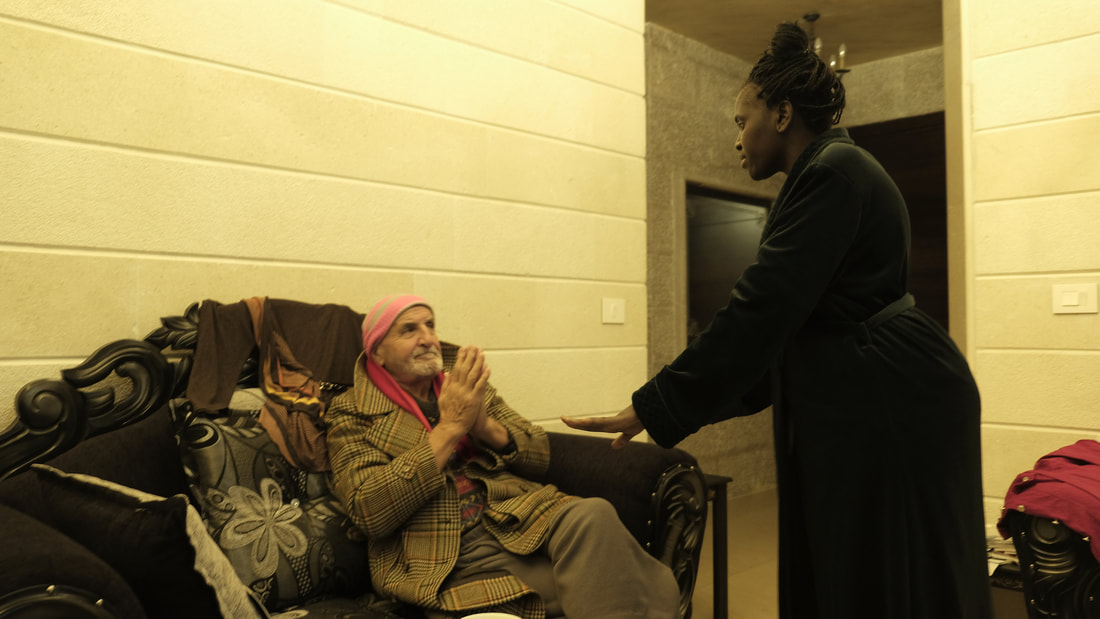
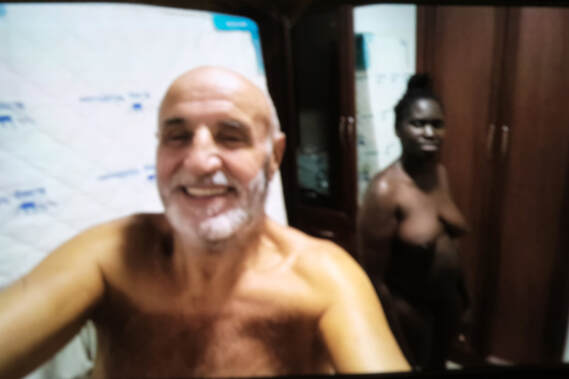
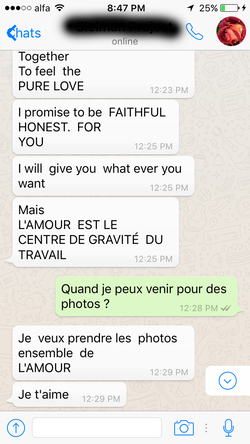

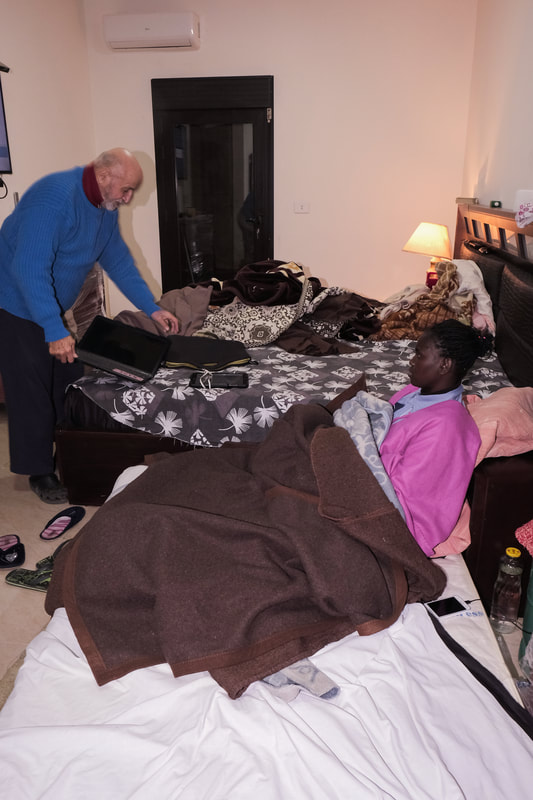
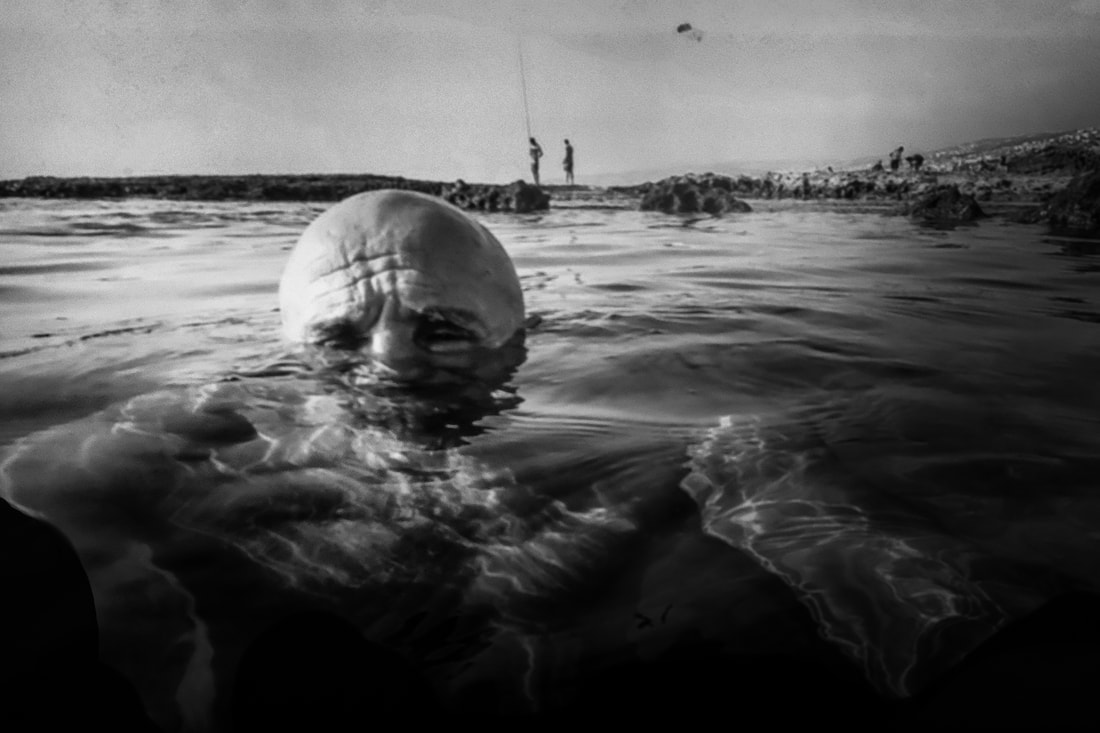
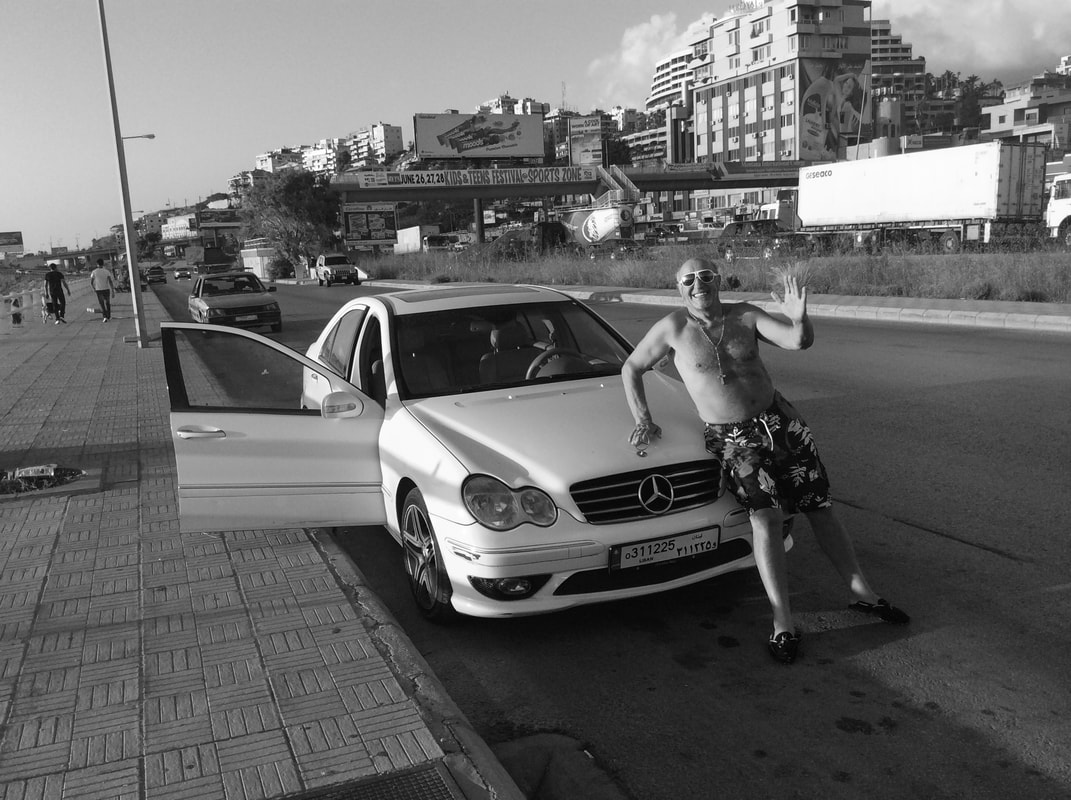
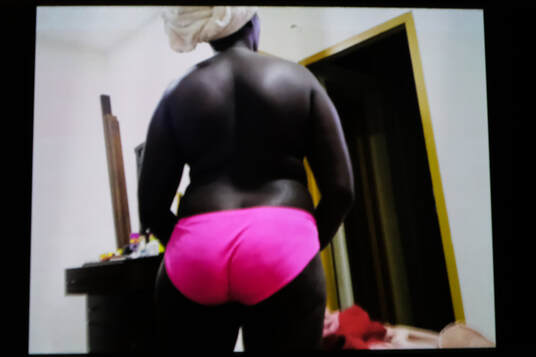
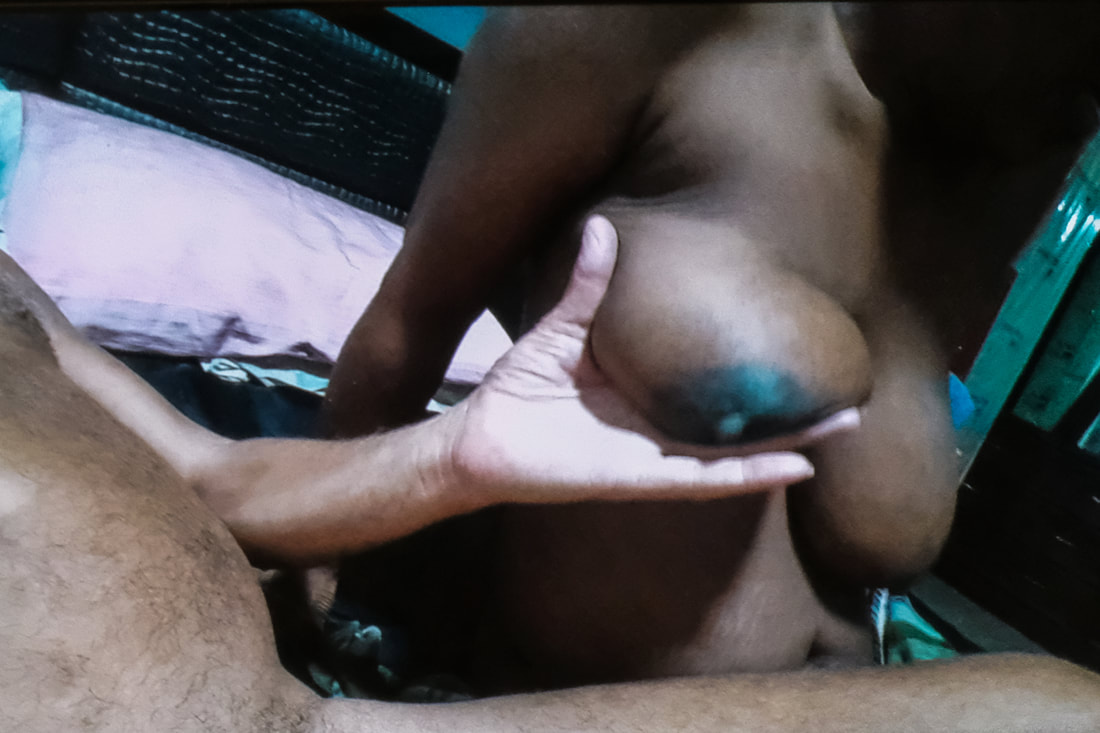
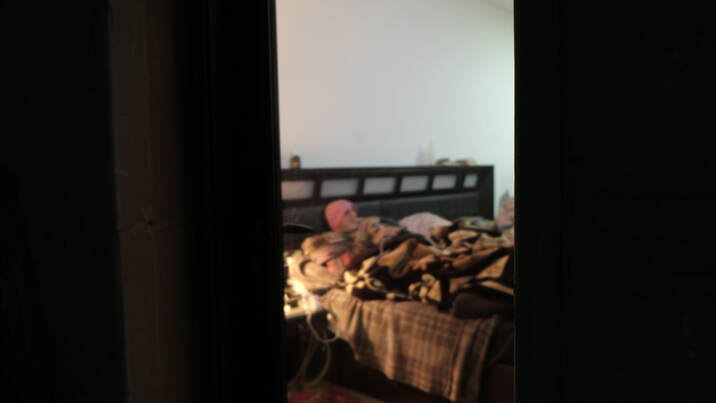
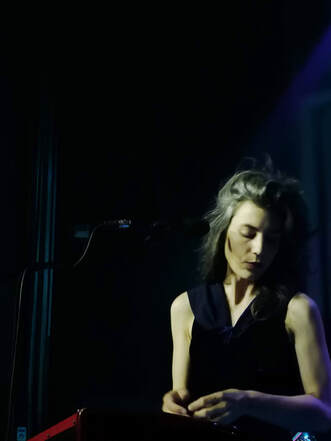

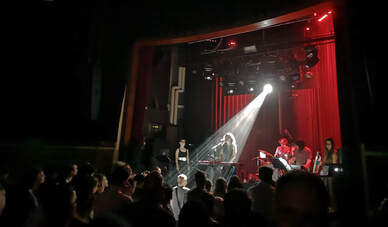
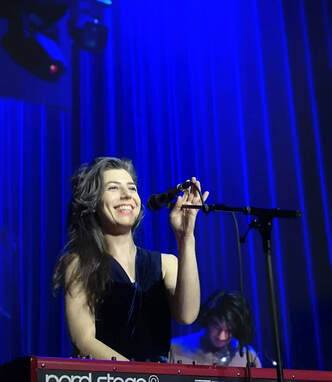

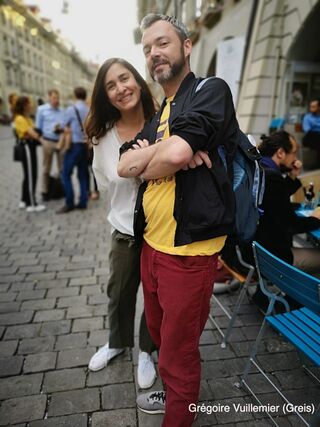
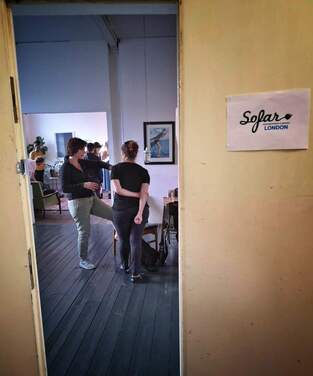
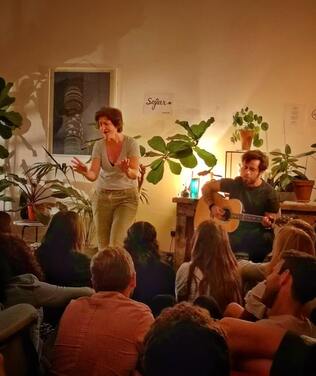
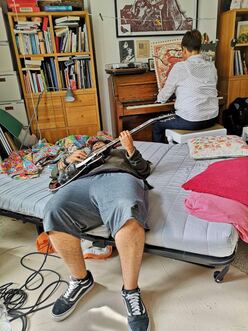
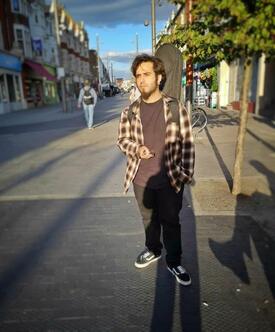
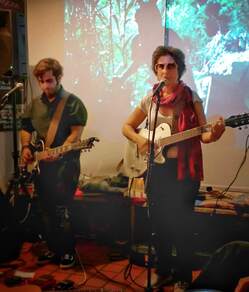


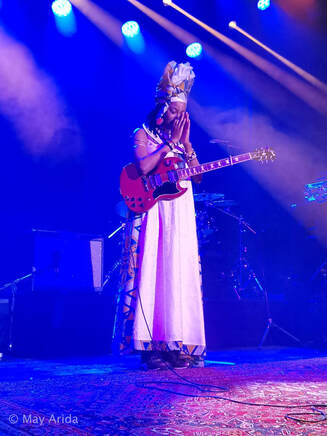
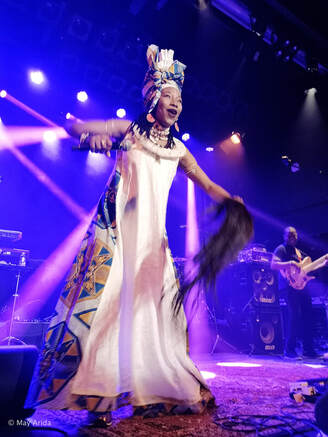

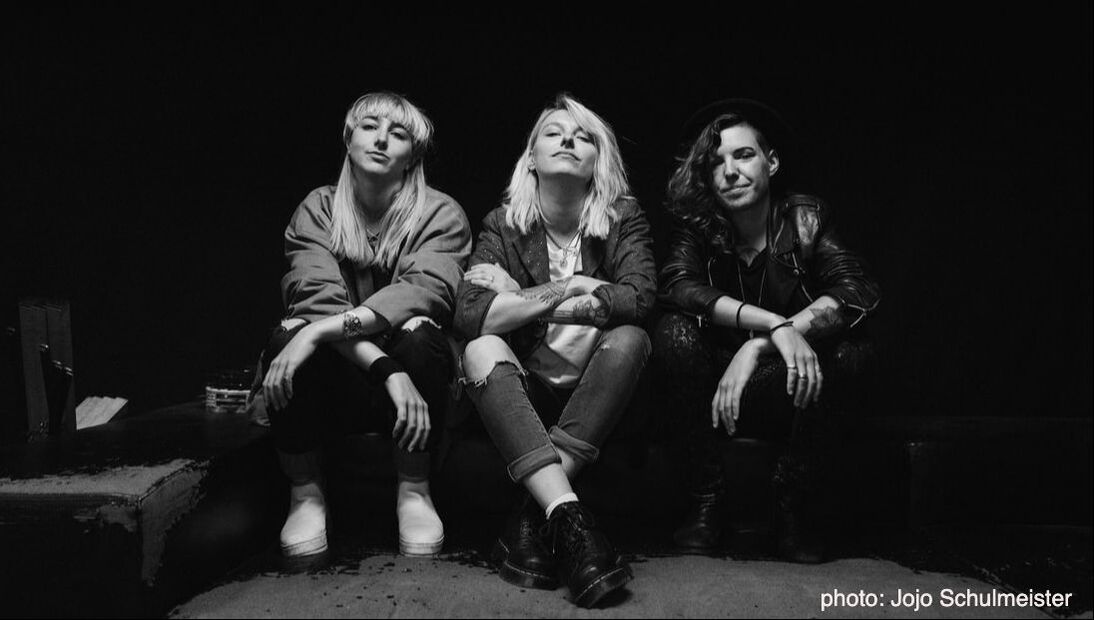


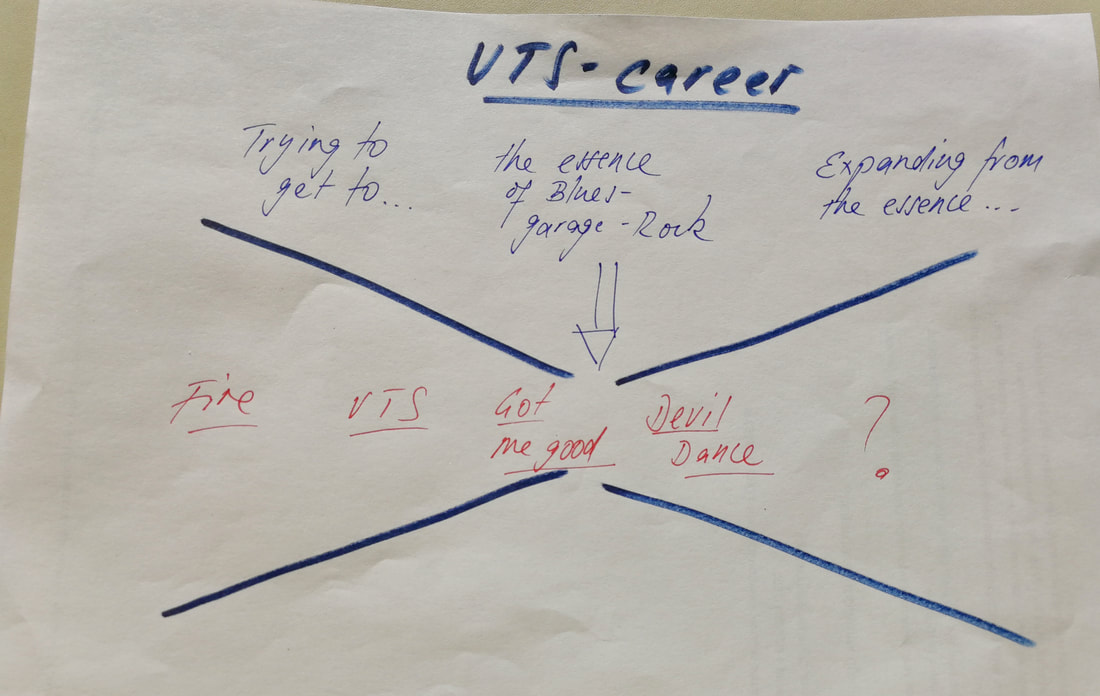
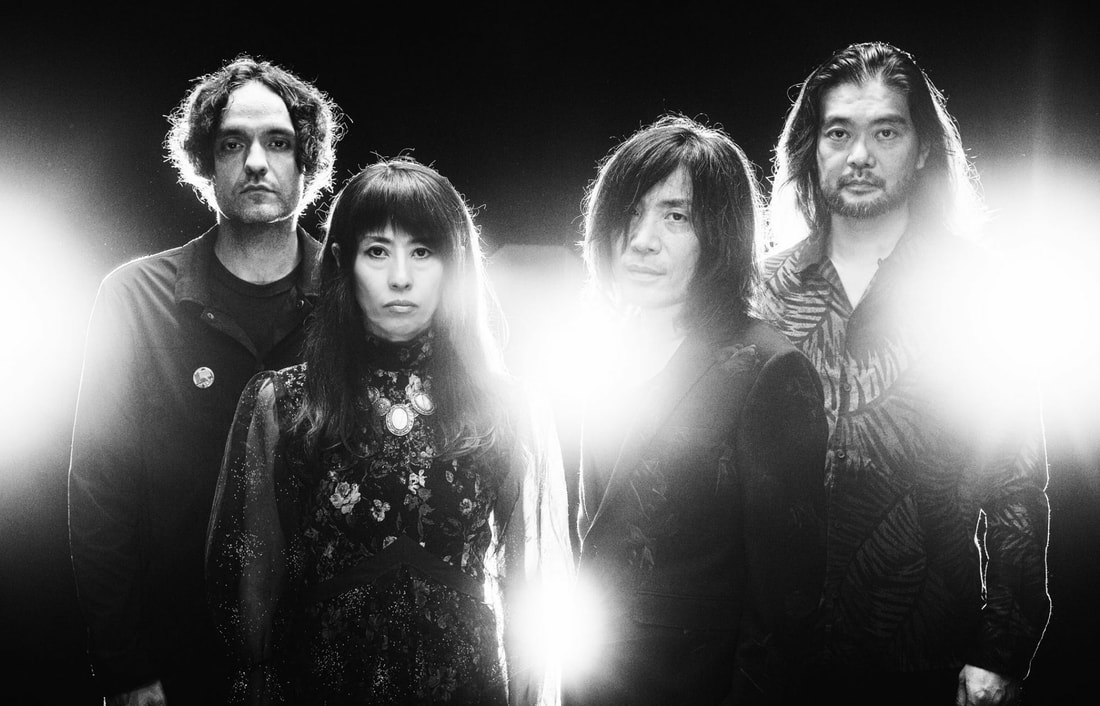
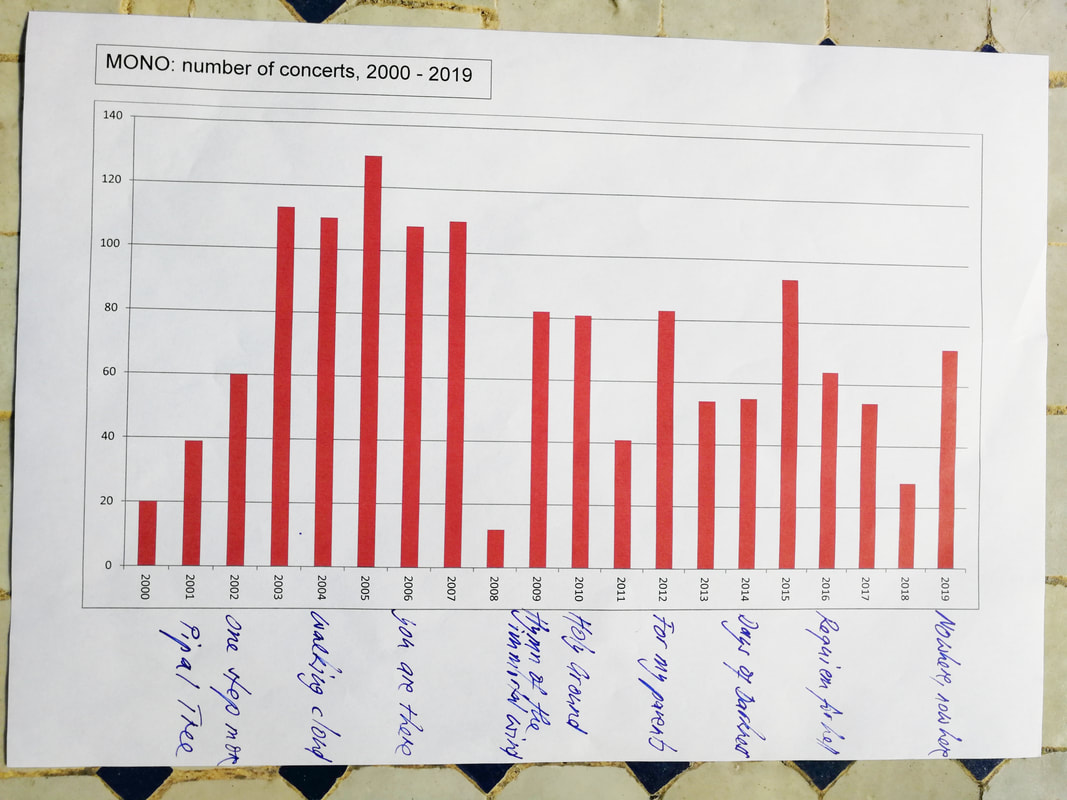
 RSS Feed
RSS Feed
